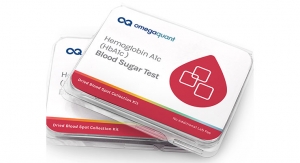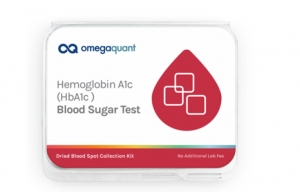08.24.18
New research published in the August edition of the Journal of the American College of Cardiology’s Heart Failure issue found significant correlations between blood levels of EPA plus DHA omega-3s in “cognitive” (as opposed to “somatic”) depression among heart failure subjects. Cognitive depression would include symptoms like sadness and pessimism, whereas somatic would include manifestations such as fatigue and sleep disturbances.
This randomized controlled pilot study was designed to investigate the effects of supplemental omega-3s (EPA and DHA) on depressive and psychomotor symptoms in people with chronic heart failure and depression.
The study included 108 subjects who were assigned to one of three groups each taking 2 grams per day of either 1) a 2:1 mg EPA/DHA supplement; 2) a high EPA product; or 3) a placebo. The study lasted 12 weeks with blood testing (i.e., Omega-3 Index, RBC levels of EPA and DHA) completed pre- and post-supplementation.
The Omega-3 Index reached 6.79% in the 2:1 EPA/DHA group, 6.32% in the EPA only group, and 4.61% in the placebo group. In those who were determined to have taken at least 70% of their capsules and finish all testing (n=80), these values were 7.32%, 7.11%, and 4.42%, respectively. This indicates that the dose (and compliance) were both adequate to significantly improve the Omega-3 Index in only three months.
The social functioning sub-score of the SF-36, a short general health survey, was significantly improved on the 2:1 EPA/DHA supplement and tended to improve with the high EPA supplement.
Significant correlations between the Omega-3 Index and measures of cognitive depression where also found. More specifically, a higher Omega-3 Index was related to lower cognitive depression scores on the Beck Depression Inventory-II (BDI-II), which is the most widely used instrument for detecting depression.
While these findings are of interest, there are a few caveats. First, this was a pilot study, so the p-values weren’t adjusted for multiple comparisons, meaning that there is a higher likelihood that these were chance findings, (i.e. 1 of 19 outcomes was different between intervention and placebo arms).
Second, possibly because the study was relatively small with limited power, there was no significant effect of either omega-3 formulation on a variety of psychological measurements, in particular on the Hamilton Depression Score (HAM-D). So the primary findings related to correlations between changes in the Omega-3 Index and the BDI-II cognitive depression metric.
Commenting on the treatment vs. prevention dilemma frequently faced by nutritionals like omega-3s was Dr. Bill Harris, one of the study’s authors and the co-inventor of the Omega-3 Index test. “This was a study in already depressed individuals, which meant the researchers are looking to high-dose (although it could have been higher) omega-3 supplements to improve depressive symptoms, like a drug,” he said.
“Generally, we think of the function of omega-3s as preventative rather than as treatment. If used as treatment, the dose must be fairly high (4 grams is a typical ‘drug’ dose) and blood levels must be measured,” Dr. Harris continued. “In their larger follow-up study, I would recommend they choose just one of the supplements (probably the pure EPA product) and increase the dose and duration of the study.”
The authors were also exploring a few different supplement options, focusing on recent evidence that EPA might be more effective for treating depression while DHA may be better for general cognition. “From this study, it’s not clear to me that one supplement type was better than the other,” Dr. Harris said, adding, “However, linking higher blood levels of omega-3s to improved depression symptoms in people with both depression and heart failure is encouraging and hopefully leads to better treatment for their conditions.”
This randomized controlled pilot study was designed to investigate the effects of supplemental omega-3s (EPA and DHA) on depressive and psychomotor symptoms in people with chronic heart failure and depression.
The study included 108 subjects who were assigned to one of three groups each taking 2 grams per day of either 1) a 2:1 mg EPA/DHA supplement; 2) a high EPA product; or 3) a placebo. The study lasted 12 weeks with blood testing (i.e., Omega-3 Index, RBC levels of EPA and DHA) completed pre- and post-supplementation.
The Omega-3 Index reached 6.79% in the 2:1 EPA/DHA group, 6.32% in the EPA only group, and 4.61% in the placebo group. In those who were determined to have taken at least 70% of their capsules and finish all testing (n=80), these values were 7.32%, 7.11%, and 4.42%, respectively. This indicates that the dose (and compliance) were both adequate to significantly improve the Omega-3 Index in only three months.
The social functioning sub-score of the SF-36, a short general health survey, was significantly improved on the 2:1 EPA/DHA supplement and tended to improve with the high EPA supplement.
Significant correlations between the Omega-3 Index and measures of cognitive depression where also found. More specifically, a higher Omega-3 Index was related to lower cognitive depression scores on the Beck Depression Inventory-II (BDI-II), which is the most widely used instrument for detecting depression.
While these findings are of interest, there are a few caveats. First, this was a pilot study, so the p-values weren’t adjusted for multiple comparisons, meaning that there is a higher likelihood that these were chance findings, (i.e. 1 of 19 outcomes was different between intervention and placebo arms).
Second, possibly because the study was relatively small with limited power, there was no significant effect of either omega-3 formulation on a variety of psychological measurements, in particular on the Hamilton Depression Score (HAM-D). So the primary findings related to correlations between changes in the Omega-3 Index and the BDI-II cognitive depression metric.
Commenting on the treatment vs. prevention dilemma frequently faced by nutritionals like omega-3s was Dr. Bill Harris, one of the study’s authors and the co-inventor of the Omega-3 Index test. “This was a study in already depressed individuals, which meant the researchers are looking to high-dose (although it could have been higher) omega-3 supplements to improve depressive symptoms, like a drug,” he said.
“Generally, we think of the function of omega-3s as preventative rather than as treatment. If used as treatment, the dose must be fairly high (4 grams is a typical ‘drug’ dose) and blood levels must be measured,” Dr. Harris continued. “In their larger follow-up study, I would recommend they choose just one of the supplements (probably the pure EPA product) and increase the dose and duration of the study.”
The authors were also exploring a few different supplement options, focusing on recent evidence that EPA might be more effective for treating depression while DHA may be better for general cognition. “From this study, it’s not clear to me that one supplement type was better than the other,” Dr. Harris said, adding, “However, linking higher blood levels of omega-3s to improved depression symptoms in people with both depression and heart failure is encouraging and hopefully leads to better treatment for their conditions.”




























